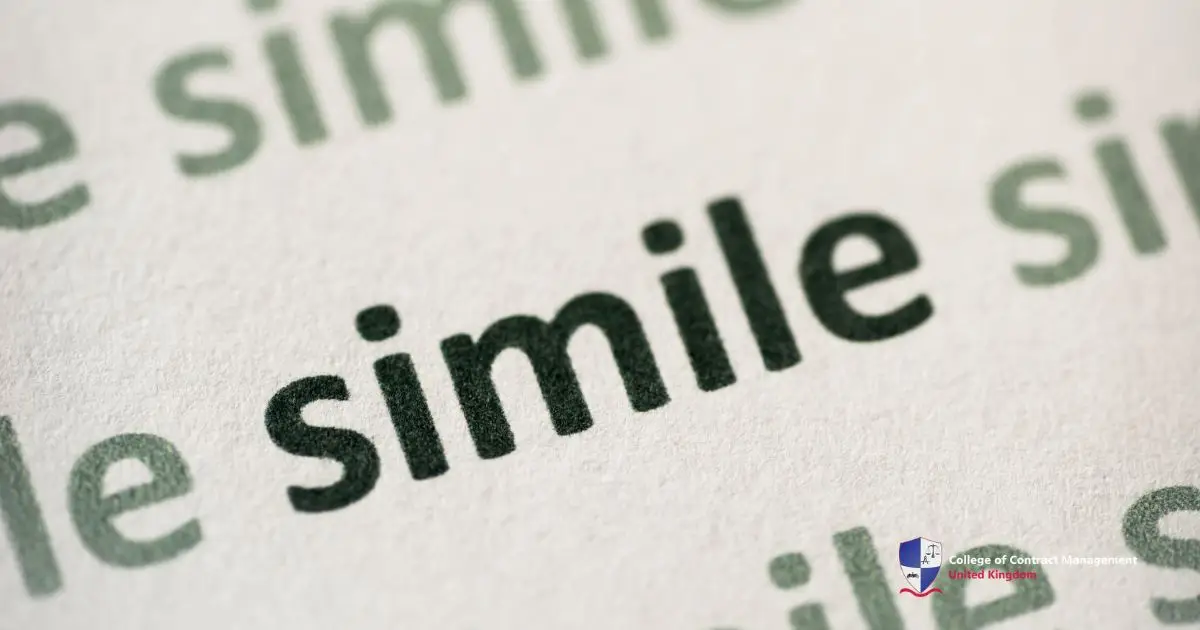Sometimes, oversimplifying ideas isn't the best way to express a line of thought. In more difficult topics like sciences and history, it's better to make use of a complex sentence. Complex sentences pave the way for speakers and writers alike to deliver their ideas in a way that allows more room for detail, all while avoiding repetitiveness. Through complex sentences, the speaker or the writer can present complicated messages in a more digestible manner without altering their meaning.
But to first make use of a complex sentence, it's best to begin with understanding what it is. This article serves to give more insight into what it is and how you can form one. Continue reading to enhance your understanding of this type of sentence and use it in fields such as content writing, teaching, coming up with business documents, or even just in daily life activities.
What is a Complex Sentence?
A complex sentence is a sentence that has two clauses together. These clauses are independent clauses, the one that can stand on its own, and dependent clauses, the one that needs more information to have a meaning. These sentences help add details and make your writing or speech more interesting.
The independent clause is like a full thought that makes sense by itself, while the dependent clause gives extra details but can't stand alone. Complex sentences are super useful because they help you connect ideas and show how they relate to each other. Using them can make your writing sound smarter and more creative!
Independent Clause
An independent clause is a group of words that has both a subject and a verb and expresses a complete thought. It can stand alone as a complete sentence without needing additional information. In a complex sentence, the independent clause is the main part of the sentence, and it is joined with a dependent clause using a subordinating conjunction.
For example, in the sentence "She went to the store," the independent clause is "She went to the store." Independent clauses can be connected to other clauses to form compound or complex sentences. The statements can be used alone and/or combined with another clause to make new meanings.
Dependent Clause
Another important part of a complex sentence is a dependent clause. This type of clause depends on an independent clause to form a complete sentence. Dependent clauses often begin with subordinating conjunctions such as "because," "if," "when," "although," or "while."
For instance, in the sentence "She stayed home because she was sick," the dependent clause is "because she was sick." Dependent clauses are unable to stand alone as sentences because they leave the reader expecting more information. They add context, explanation, or detail to the independent clause, enhancing the sentence's meaning.
Parts Comprising a Complex Sentence
There are different parts that make up a complex sentence. These parts include the subordinating conjunction, independent clause, dependent clause, and relative pronoun. Each part plays an important role in contributing to the overall meaning conveyed in a complex sentence. Further details on each role are listed down below:
Subordinating Conjunctions: Words that connect the independent and dependent clauses.
- Common examples include: After, although, because, before, if, since, until, when, while
Independent Clause: A complete thought that can stand alone.
- Example: "I will go to the park."
Dependent Clause/Subordinating Clause: A clause that cannot stand alone.
- Example: "Because it is sunny."
Relative Pronouns: Sometimes, a complex sentence includes relative pronouns such as "who," "which," or "that," which introduce relative clauses. These words and components help form complex sentences by joining different ideas and clauses into a single, meaningful structure.
Complex Sentence example and structure
After learning about the different parts of complex sentences, we can now try to create an example and identify its parts. In addition, there are various ways to write a complex sentence. So, in this section, you will learn about the different structures you can use to form complex sentences.
Structure: Independent Clause + Subordinating Conjunction + Dependent Clause
This is the most common structure, where the independent clause comes before the dependent clause. In most cases, no comma is needed.
Example: "I am studying for a Professional Diploma in CAD to upskill because I want to advance my career."
- Independent Clause: "I am studying for a Professional Diploma in CAD to upskill "
- Subordinating Conjunction: "because"
- Dependent Clause: "I want to advance my career"
Structure: Dependent Clause + Subordinating Conjunction + Independent Clause
When the dependent clause comes first in a complex sentence, a comma is usually required to separate the clauses.
Example: "Because it was raining, I stayed home."
- Dependent Clause: "Because it was raining"
- Subordinating Conjunction: "Because"
- Independent Clause: "I stayed home"
Comma Rule: When the dependent clause comes first, a comma is needed to separate the two clauses.
Structure: Independent Clause + Relative Pronoun + Dependent Clause
This structure involves a relative clause (introduced by relative pronouns like who, which, that), often providing additional information about a noun in the independent clause.
Example: "The book, which was on the shelf, was very old."
- Independent Clause: "The book was very old"
- Relative Pronoun: "which"
- Dependent Clause: "which was on the shelf"
Structure: Independent Clause + Subordinating Conjunction + Dependent Clause + Subordinating Conjunction + Dependent Clause
In a more complex sentence, there can be multiple dependent clauses attached to a single independent clause.
Example: "She went to the park because the weather was nice and she wanted to get some exercise."
- Independent Clause: "She went to the park"
- Subordinating Conjunction: "because"
- First Dependent Clause: "the weather was nice"
- Subordinating Conjunction: "and"
- Second Dependent Clause: "she wanted to get some exercise"
Structure: Independent Clause + Coordinating Conjunction + Independent Clause + Subordinating Conjunction + Dependent Clause
This structure includes a coordinating conjunction in combination with a subordinating conjunction, creating a more complex sentence.
Example: "I wanted to go to the beach, but it started raining before we left."
- Independent Clause: "I wanted to go to the beach"
- Coordinating Conjunction: "but"
- Independent Clause: "it started raining"
- Subordinating Conjunction: "before"
- Dependent Clause: "we left"
Different Uses of Complex Sentences
As mentioned earlier, a complex sentence makes your speech or writing more interesting. They add more detail and meaning, helping you share ideas in different situations. By connecting thoughts, they let you explain, describe, or express emotions in a clearer way. Learning how to use complex sentences can make it easier to share your ideas and make your writing or speaking more creative. Read more to see the uses of complex sentences in our daily communication and writing.
1. Cause and Effect
- Purpose: To show a reason, cause, or result.
- Subordinating Conjunctions: because, since, as, so that
- Examples:
-
- "She passed the exam because she studied hard." (Cause)
- "The company grew rapidly because it introduced new technology." (Cause)
- "It was raining, so we stayed indoors." (Result)
2. Condition
- Purpose: To express a condition or hypothetical situation.
- Subordinating Conjunctions: if, unless, provided that
- Examples:
- "If you finish your homework, you can play video games."
- "I will go to the park unless it rains."
3. Contrast or Concession
- Purpose: A complex sentence can be used to show contrast or concession between two ideas.
- Subordinating Conjunctions: although, even though, though, whereas
- Examples:
- "Although it was raining, they went for a walk."
- "Even though he was tired, he continued working."
4. Time
- Purpose: To indicate when something happens or to describe the relationship between actions in time.
- Subordinating Conjunctions: when, while, before, after, as soon as, until
- Examples:
- "She called me after she finished her work."
- "I always go to bed when the clock strikes midnight."
5. Additional Information or Explanation
- Purpose: To add more detail or clarify something.
- Subordinating Conjunctions: who, which, that (relative pronouns)
- Examples:
- "The teacher, who loves reading, gave us a book list."
- "The movie, which was directed by Steven Spielberg, received excellent reviews."
6. Simultaneous Actions
- Purpose: To show that two actions occur at the same time.
- Subordinating Conjunctions: while, as
- Examples:
- "He listened to music while studying for the test."
- "I read a book as I drank my coffee."
7. Purpose or Intent
- Purpose: Another use for a complex sentence is to show that two actions occur at the same time.
- Subordinating Conjunctions: so that, in order to
- Examples:
- "She left early so that she could catch the bus."
- "I am studying hard in order to get a scholarship."
Conclusion
Words are powerful, but sometimes they aren’t enough to explain exactly what we mean. It can be hard to show all the little details and feelings behind our ideas when all we have are words. That's why learning how to use sentences effectively is so important—it gives us tools to express ourselves better.
In conclusion, a complex sentence is useful—it helps us connect our thoughts and say things more clearly. By learning how to use them, you can express your thoughts easier, may it be in speaking or writing.
Learn more about Complex Sentences
Join us so that you can unlock your potential! Here at the College of Contract Management, we help you learn more! We offer courses for careers that use complex sentences every day, like teachers, SEO copywriters, freelancers, and more!





